Bangkok
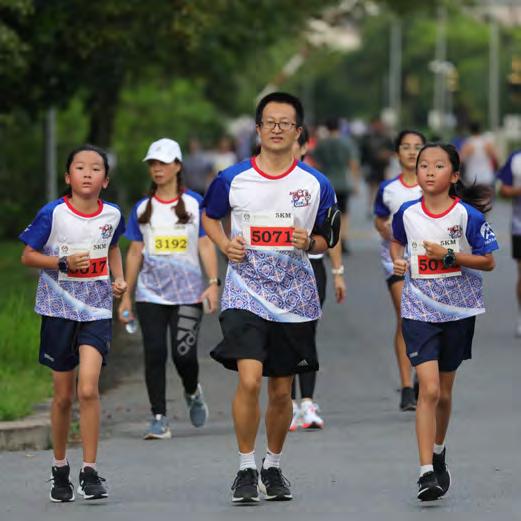
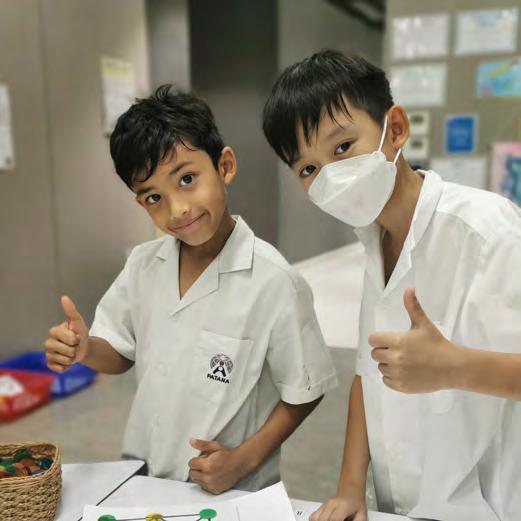
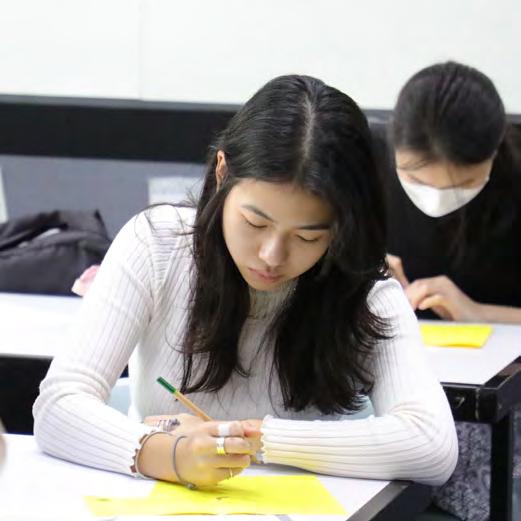
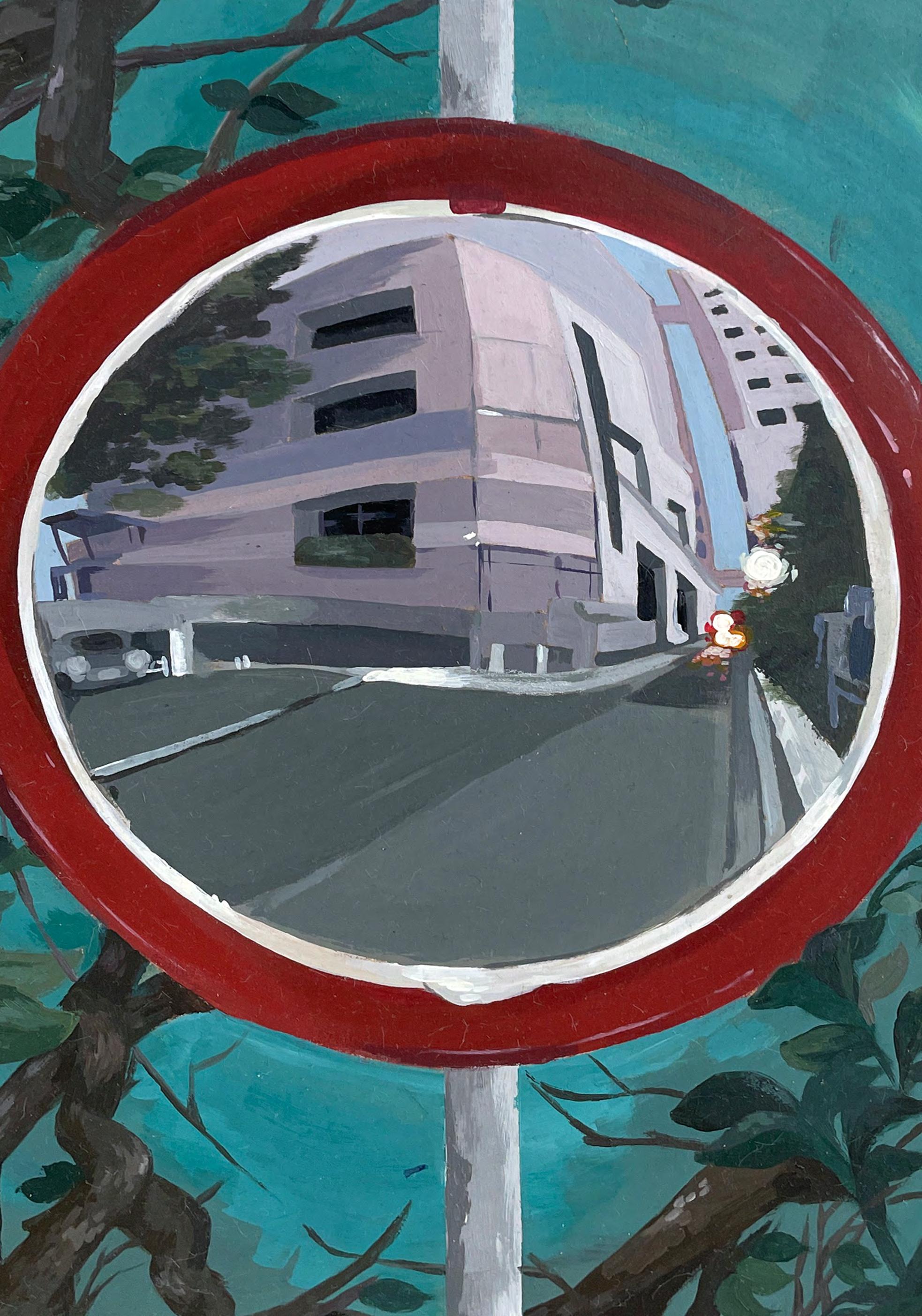
The Termly Magazine of Bangkok Patana School
Patana
Magazine Issue 68 Term 1, December 2022 GLOBAL CITIZENSHIP Test Taking Strategies: Study Smarter LEARNING Brain Boosters WELL-BEING Angela Royle Fun Run
Bangkok Patana is a not-for-profit IB World School accredited by CIS






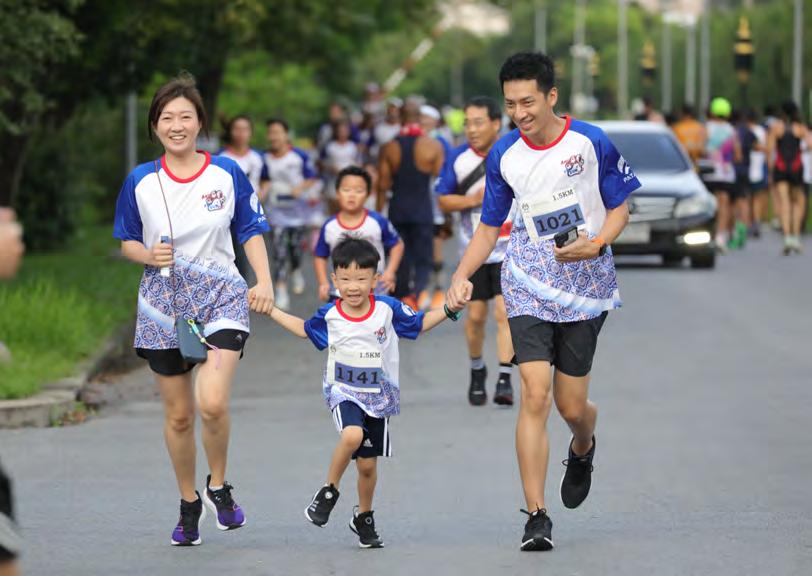

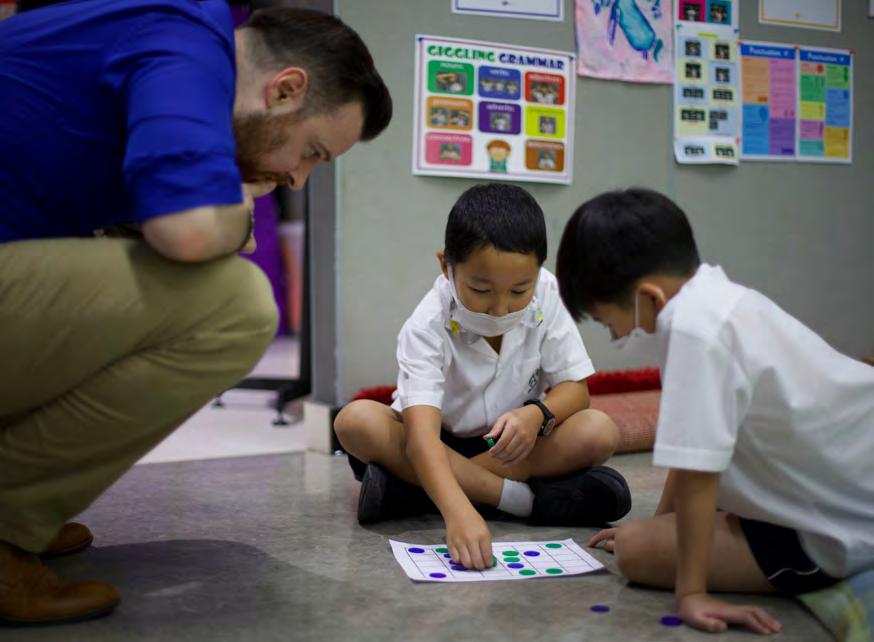
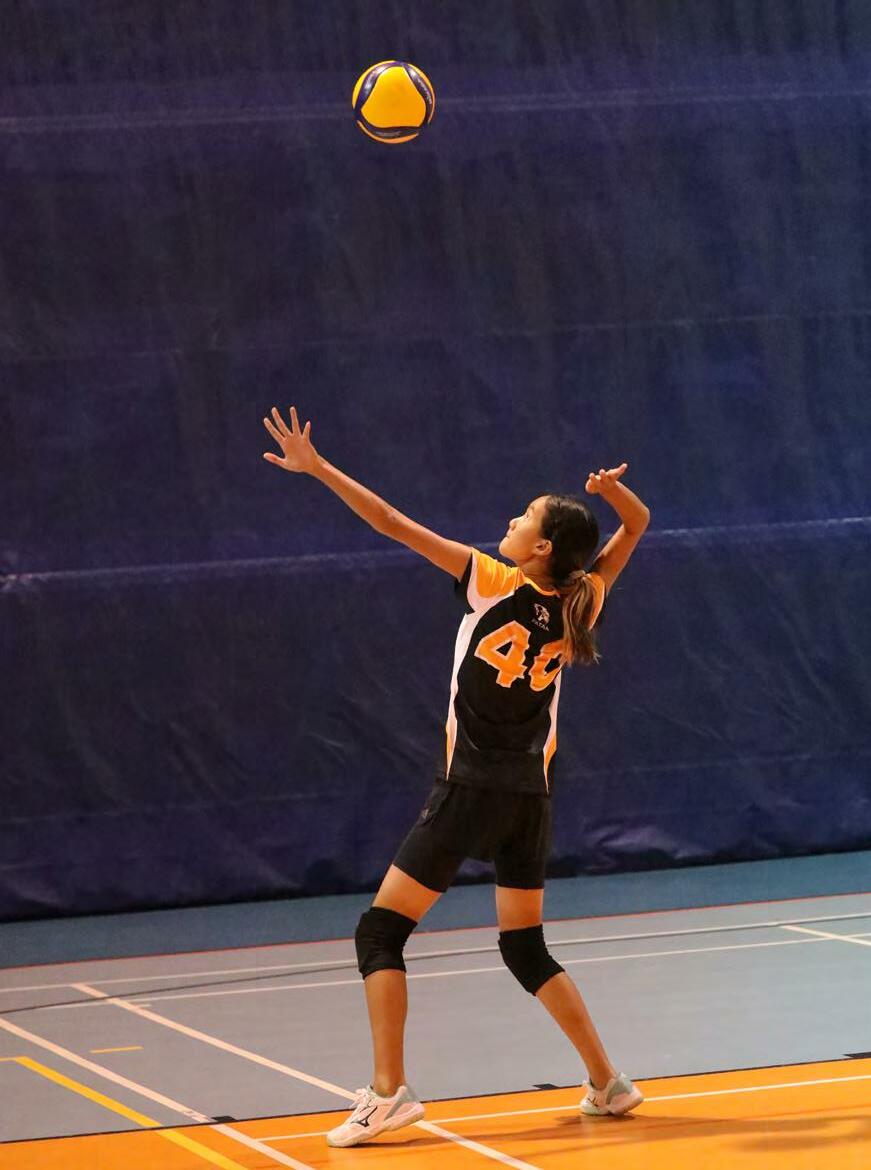
4 • Bangkok Patana School LEARNING CONTENTS Issue 68, Term 1, December 2022 Front Cover: Ornvara (Melody) Bhuridej, 13S 22 WELL-BEING 11 Language Matters When Embracing Diversity 12 Smooth Sailing: the Duke of Edinburgh’s (DofE) International Award 14 Angela Royle Fun Run LEARNING 8 Instructional Coaching 16 Brain Boosters 18 Remote Resource System for a Digital Society 20 Introspective: Values and Learning 21 Home Away from Home GLOBAL CITIZENSHIP 22 Ines Dumont, Grad ‘12 24 Test Taking Strategies: Study Smarter 26 A Clean Slate 26 16 14 •
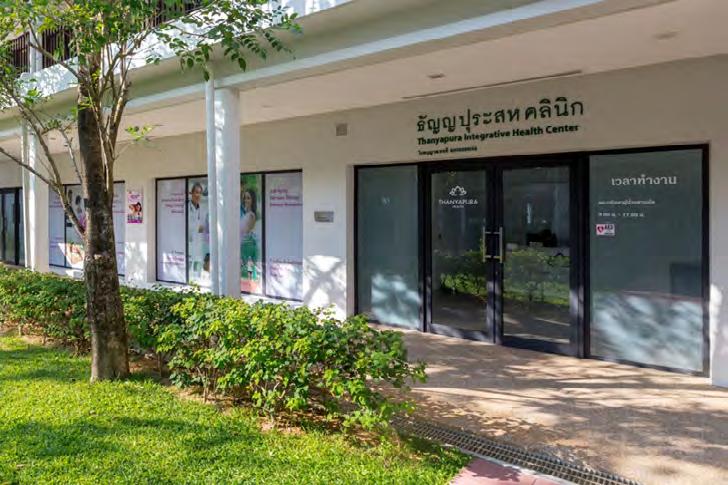
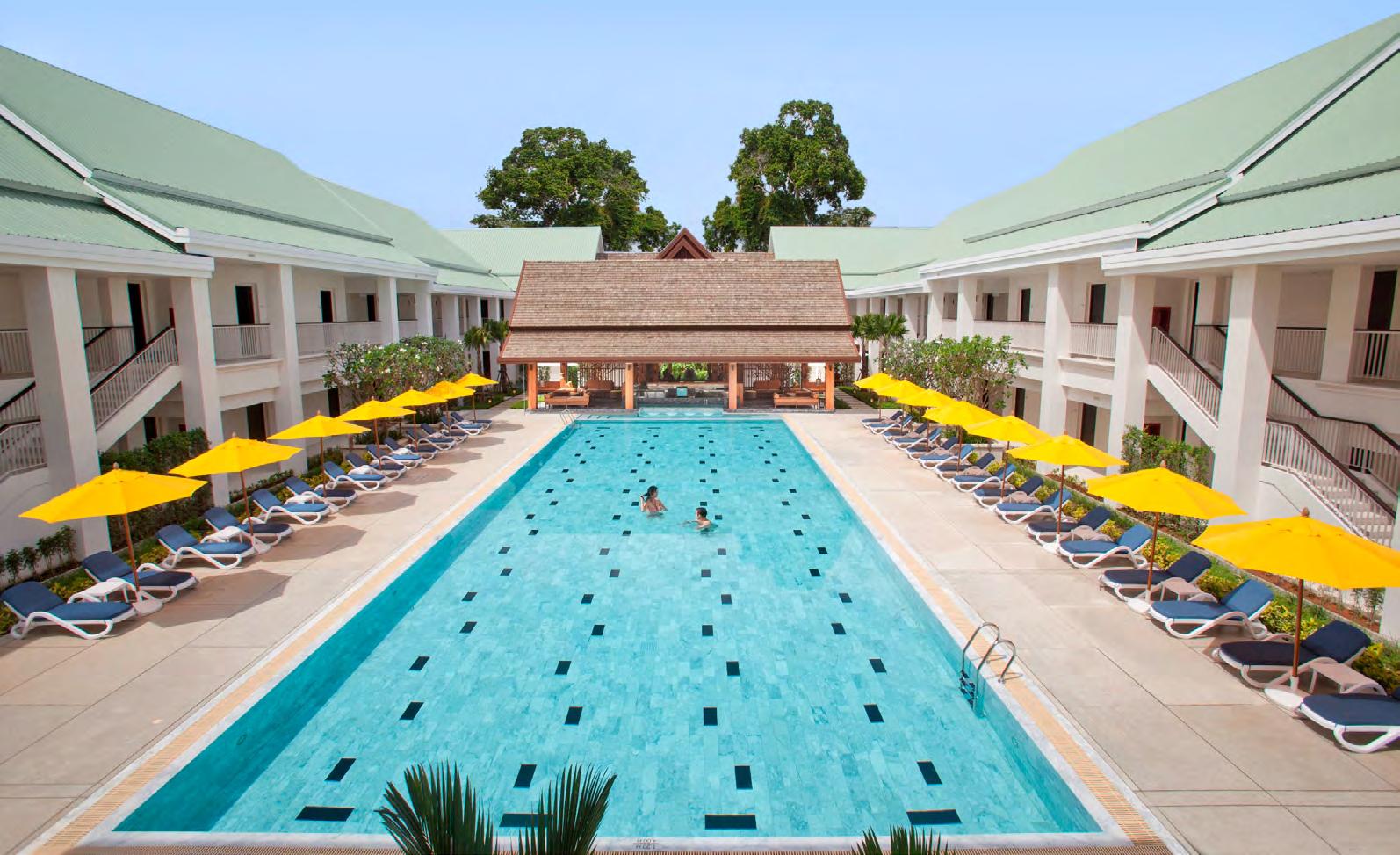

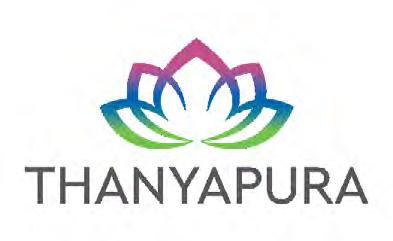



In my new role as Cross Campus Assistant Principal, Extracurricular Activities and Sports, I have been lucky enough to already work with so many different people across the school who provide students with amazing opportunities in an area I consider to be integral during their school life. I have met the fantastic PTG, worked daily with the amazing Sports & Activities team and even met alumni who are now facilitating learning to current students. Seeing the students from Year 1 to Year 13 enjoy Block A of our ECA programme in a wide range of areas has been a personal highlight. Everyone has made me feel so welcome and I couldn’t be more thankful to the wider school community in helping me settle so quickly into life at Bangkok Patana!
The school’s values of well-being, learning and global citizenship are shared in my own educational philosophy of creating independent, empathetic, creative and critical thinkers. Such implementation through the extra-curricular programme has endless potential for students with interests across the arts, sports, community service and outward-bound activities to develop this skill set for their future.
Extra-curricular activities place student well-being at their forefront and the benefits of these are endless. The broad range on offer at Bangkok Patana promotes student choice, allowing them to explore interests and gain greater selfconfidence. It opens opportunities to build new friendships, aids creative thinking and can positively impact their progress. My 94-year-old grandma said to me when I made the move to Bangkok, “Take every opportunity that comes your way and most importantly have fun with it. Always say ‘Yes’ to new adventures because you’ll never know unless you try!”.
If I were a student at Bangkok Patana, I would grab every one of these opportunities and aim to try as many different things as possible throughout my time at school. There really is something for everyone!
The excitement of the return of school sport this academic year has been felt amongst our community, with hundreds of
students already representing Bangkok Patana this term. It is so refreshing after the pandemic to see students of all ages back on the football field, climbing wall, gymnasium and in the pool! Early morning cross country club has proven to be more popular than ever, despite the 6.15am start. Parents have been back on site to support, and we have travelled to both Singapore and Phuket for international tournaments. There is plenty more to come in Terms 2 and 3, where we will also be hosting many different sporting events including FOBISIA Dance, Football, Swimming and Tennis. I am really looking forward to the many events to come, experiencing many Bangkok Patana traditions for the first time and am proud to be a new member of the Bangkok Patana family.
By Alice Curwood, Cross Campus Assistant Principal, Extra-curricular Activities and Sports
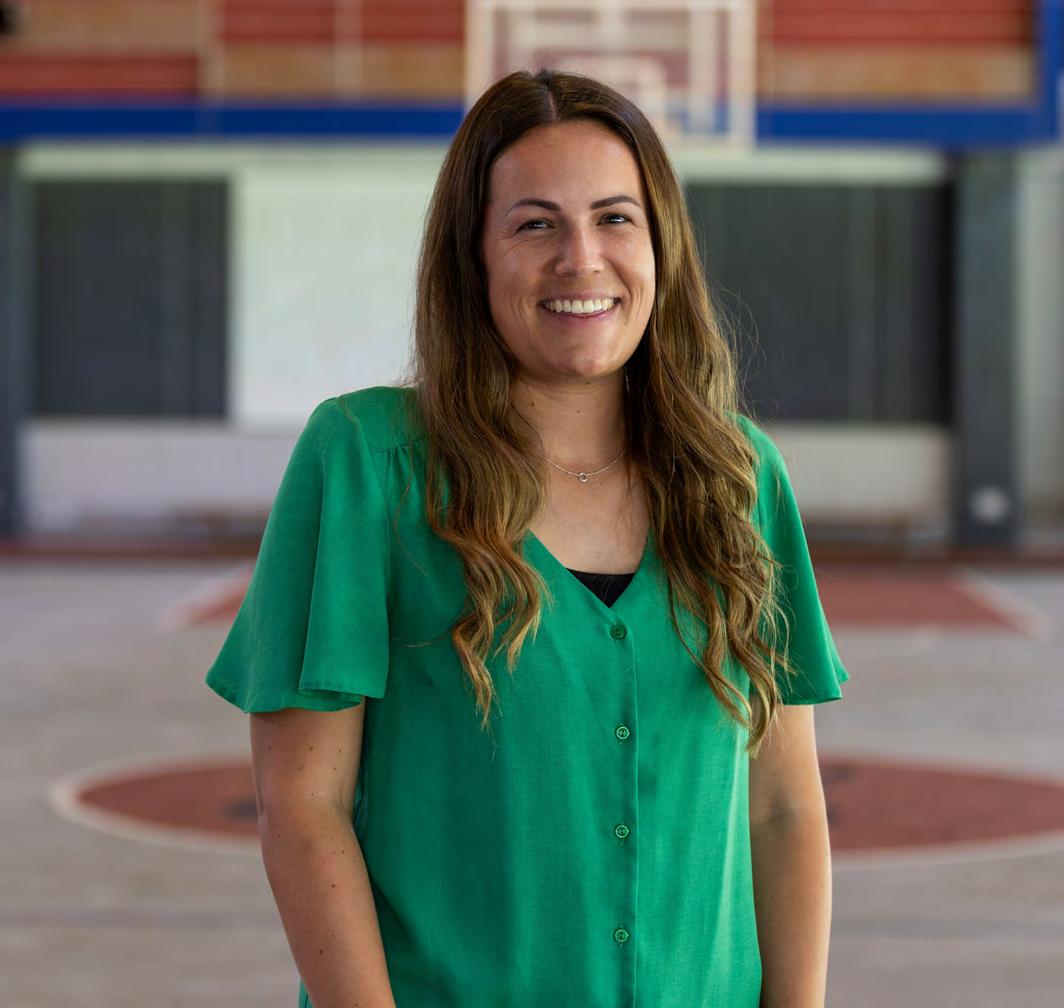
643 Lasalle Road (Sukhumvit 105)
Bangna Tai, Bangna
Bangkok 10260 Thailand
Tel: +66 (0) 2785 2200
Email: reception@patana.ac.th www.patana.ac.th
of
Editor: Stasha Malcolm
Tel: +66 (0) 2785 2411
Email: STML@patana.ac.th
Advertisement: Finn Balslev Tel: 081-866-2577
Email: finn@scandmedia.com
Design & Production: Scand-Media Corp., Ltd. Tel: +66 (0) 2943 7166-8 www.scandmedia.com
6 •
LEARNING GLOBAL CITIZENSHIP
Bangkok Patana School
6 •
Bangkok Patana School
Bangkok Patana Magazine is the termly publication of Bangkok Patana School published three times per year and distributed to 2,000 members
the School community. Reproduction of articles, artwork and illustrations by written permission only.
FOREWORD


989 Moo 14, Bang Sao Thong, Samutprakarn 10570, Thailand +66 2 082 8998 www.siampremiumoutlets.com Siam Premium Outlets Bangkok siampremiumoutletsbangkok Siampremiumoutlets Siampremiumoutlets 曼谷 暹罗精品奥特莱斯
INSTRUCTIONAL COACHING
By Mark Verde, Primary Assistant Principal, Learning and Curriculum
“You can’t see what you do until you see what you do!” This simple statement by Jim Knight speaks volumes to all educationalists when considering the best approach to learning. It is a philosophy that we are embracing across the Primary School, through the practice of Instructional Coaching (IC). Instructional Coaches partner with teachers to help them improve their teaching so that children can
become more successful by analysing current reality, setting goals, identifying and explaining teaching strategies to meet goals together and providing support until the goal is met. There are also many different types of coaching practices, which Tom Sherrington and Oliver Caviglioli detail in their Walkthrus Book. Thus, IC is a dialogical approach, which is midway between two better known
models of coaching: the facilitative approach and the directive approach, as shown in the diagram overleaf.
Jim Knight explains that in a facilitative approach the teacher is the expert and the coach listens and guides them through their thinking, whereas in a directive approach the coach brings and imparts all knowledge with a partner who has no knowledge. However, in

8 • Bangkok Patana School WELL-BEING
LEARNING
DIALOGICAL
DIRECTIVE
a dialogical approach the teacher and coach work together in partnership. The coach is not the expert but rather comes with expertise and the teacher remains the decision maker. “I don’t give advice, I don’t show up like an expert, but I have expertise that I share with my partner.”

In September 2021, we began working with Tom Sherrington to explore IC together. Our goal was to implement the practice across the school through a series of Continued Professional Learning (CPL) sessions. Our Middle Leaders (MLs) received training, which enabled them to develop their expertise and knowledge about the practice and to grow into a team of coaches. The MLs regularly partnered with one another and the members of their teams
to talk through their thinking about how best to develop learning for the children, set goals and decide on strategies that will help them achieve these goals. With support from their coach, the teachers explored the pathways to the goals and used video recordings to discuss and measure progress and set new targets for their own classes.
Our whole school learning objective is to make use of evidence-based strategies to unlock student potential. This year IC is the central strategy we are practising in the Primary School to achieve this objective.
During our May 2022 professional learning day, Tom Sherrington delivered a virtual keynote to everyone in the Primary School celebrating the progress
we had made when exploring IC. He highlighted the consistency and collaboration gained through the approach and talked about how he is looking forward to working with us this year to embed the practice and develop it at a much deeper level across the school. Further training with the MLs in May 2022 resulted in the development of the Bangkok Patana Core 7. These are seven strategies that each Year group and specialist team are implementing across the school with the goal of building positive relationships that impact on the emotional, behavioural and cognitive engagement of all our students. These were implemented in August 2022 and successes and challenges are regularly discussed during team meetings. Over the year, the strategies are built into clusters, depending on the team goals, to unlock student potential. This approach mirrors Tom’s Core 10 in his Walkthru resources. In May 2023 Tom will visit Bangkok Patana to provide professional learning workshops, observe and feedback on how we are succeeding with our Bangkok Patana Core 7.
“It’s been a wonderful experience working with Mark and his Bangkok Patana colleagues as they explore the world of IC, as supported by our Walkthrus materials. I’ve been impressed by the enthusiasm people have shown and the attention to detail in selecting techniques that tackle specific challenges in the classroom. The coaching sessions I’ve observed via zoom have been excellent, with coaches modelling a superb balance of supportive affirmation, exploration through probing questioning and appropriate challenge and direction – all geared towards enabling more children to learn even more successfully. I’m looking forward to visiting in 2023 to see the process in action first hand.” Tom Sherrington
TERM 1 – 2023 • 9 Bangkok Patana Magazine
Coaches work from the assumption that the teacher already knows what to do
FACILITATIVE
Teacher and coaches work together as partners
Coaches work from the assumption that teachers don’t know what to do
Alongside the Core 7, every teacher will consider goals for the students they teach in their own classes. With their coach, they will have regular IC conversations where they will identify a studentfocused goal for their class, look for strategies that can support engagement (from the Walkthru book) and agree upon how they will learn and implement these over a half term. A feedback IC conversation will then occur four to six weeks later with the coach and teacher, where they look at data and video evidence and discuss where the teacher is with their goals. Adaptations, improvements, new goals and strategies are set. Actions and timelines are agreed upon and the coach provides support throughout until the teacher has met their goal. This is known as the Impact Cycle and was created by Jim Knight.
In February 2023, Bangkok Patana will be hosting Jim Knight when he delivers his Asian IC Conference at our school. Jim Knight is a Senior Partner of the Instructional Coaching Group and has spent more than two decades studying IC. He outlines this practice on the Instructional Coaching Group’s YouTube channel – watch the video called “Instructional Coaching” to learn
more. We have built a relationship with Jim throughout this year and, along with Tom, he has been supporting Bangkok Patana with his resources and advice on IC. We are part of his latest research project, A Day in the Life of a Coach, and we look forward to sharing our IC experiences with him later in the year.
On 22nd September, 26 of our MLs had their first IC conversations together. They spent an afternoon sharing their thoughts, questions and ideas about the

students they teach and the learning they are keen to develop. This enabled them to experience the process as a coach and coachee, as well as providing them with the opportunity to practise their coaching skills using the Impact Cycle to guide their thinking, listening, questioning and discussion. In this time, they set their own goals and strategies and prepared to coach their colleagues during the October professional learning days. At the start of Term 1b every teacher across the Primary School had a specific goal, strategy and actions to support learning in their class, with the aim of positively impacting student engagement.
We are venturing into an exciting stage of learning at Bangkok Patana and will be drawing on Tom Sherrington and Jim Knight to help us with our journey this year and in the future. Having such well known educationists from the UK and North America collaborating with us, through the practice of IC, will be an incredible support in enabling us to unlock all student potential and provide the best learning opportunities possible for the students in our care. The practice of IC and the use of videos to measure progress will help us really see what we do, and how we can make a difference.

10 • Bangkok Patana School LEARNING
LEARNING
LANGUAGE MATTERS WHEN EMBRACING DIVERSITY
 By Cindy Adair, Cross Campus Assistant Principal, Continued Professional Learning
By Cindy Adair, Cross Campus Assistant Principal, Continued Professional Learning
Bangkok Patana is committed to embracing diversity and inclusion and like any modern organisation, this means reckoning with some challenging truths. Taking a honest look at our cultural norms as a community and asking ourselves if there is truly equity for everyone who swipes their Bangkok Patana ID and passes through our turnstiles. We are a rich and diverse melting pot of races, religions, ethnicities and genders. Therefore, as we navigate a post #blacklivesmatter and #metoo world, one of the things our teachers have been asking us for is guidance on the language we collectively use to engage respectfully in brave and honest dialogue. “When it comes to diversity, language can be a bridge for building relationships, or a tool for creating and maintaining divisions across differences” (COPDEI, 2022).
In Term 1, to meet this need we have internally launched the Bangkok Patana Diversity, Equity, Inclusion and Justice (DEIJ) Language Guide for staff. This guide has five sections: Gender, Race, Faith, Sexuality and Physical Diversity/ Neurodiversity.

The Language Guide offers key definitions; clearly states the words we agree not to use as a community; shares suggested phrases for challenging situations; and offers a historical background on some terms in our vernacular today. It is hoped that this guide will empower staff to respond in line with our Mission “…to ensure that students of different nationalities grow to their full potential as independent learners in a caring British international community” with confidence and kindness. Much of the content in the Guide has originated from discussions had at the Gender, Race and Sexuality themed World Café CPL

(Continued Professional Learning) sessions we ran for staff in 2021/22. We intend to continue with these valuable professional learning forums by hosting both Faith and Physical Diversity themed World Cafés in Term 2.
We are at pains to ensure our staff know that the Guide is not about policing every word they say, nor is it
political correctness “gone mad”. Our advice is: do your best, make mistakes, apologise and keep moving forward. These conversations, although difficult, need to happen and happen best when we don’t take ourselves too seriously. Staff are also able to access guidance from pastoral leaders about how best to navigate challenging conversations based on the age and stage of the child involved, being sure not to offer material that is too mature before it’s appropriate or necessary.
The Guide further unpicks some nuances of our international school context. For example, in our community, students who are half Thai nationality mixed with another nationality, will often refer to themselves (and others like them) as “halfies”. Used between two “halfies” the term is affectionate and often used in jest. However, if a student who is not a “halfie” weighs in, it can take on a more sinister tone. Context is king!
As language is ever-evolving, so too will the Guide. Did you know approximately 650 new words are added annually to the Urban Dictionary, a crowd-sourced, web based dictionary of sorts, which records the evolution of new words being used predominantly by young people. Interestingly, the Urban Dictionary (the grittier and more controversial twin of the actual Dictionary) often includes multi-ethnolect words used by mixed-race or third culture kids, commonly dismissed or not recorded elsewhere.
As our understanding of the impact of well-being on cognitive performance develops, we can no longer prescribe to the old adage of, “Sticks and stones may break your bones, but words will never hurt you.” We now know that words can indeed be damaging and hurtful. Words matter.
TERM 1 – 2023 • 11 Bangkok Patana Magazine
WELL-BEING
SMOOTH SAILING: The Duke of Edinburgh’s (DofE) International Award
By Sichao Xiong, former Year 11 student, current student at Oxford University
5, 4… pull in the main sheet…
3… winch the jib…
2… bear away… 1… Go!
As the familiar voice on the radio marked the beginning of the race, the two platus (Dragon and Weasel) sailed off towards the island in the distance.
Only days prior, we had naively waddled into the “Sail in Asia” headquarters, clueless to how a sail works. The art of sailing mystified us as the instructors called out foreign jargon left and right (“Ready about, tacking!” and “Luffing up”). Under the wind, the boat was a wild horse, refusing to be tamed; our blistering fingers held tight onto the ropes as though the slightest slip would cause us to lose control.
As we gained more confidence, chaos became order as we began to work harmoniously. The skipper was like the conductor as they coordinated everyone on the different roles: steering (skipper), mainsheet and jib as each action had to be perfectly timed. Though separate, each of our contributions added several precious “knots” (1 knot = 1 nautical mile/ hour) as we strived to extract the maximum potential. The multitude of theory lessons allowed us to proficiently utilise the different points of sail to position the boat in the optimal position to

12 • Bangkok Patana School LEARNING
WELL-BEING
12 • Bangkok Patana School
catch the wind. After putting everything we’ve learnt into practice, it seemed as though our boundaries were limitless like the ocean, as we now had the knowledge to sail to wherever we pleased.
With the assessed journey looming ever closer, we practised route planning on the Navionics® app, which uses satellites to extrapolate our location. Unlike previous DofE expeditions, our course would be automatically plotted due to the unknowns in the ever-changing tides and seafloor depth; the app would therefore provide us with reliable information such that we do not beach ourselves or crash into reefs. In terms of nutrition, we purchased the necessary food and emergency rations according to our meal plan and organised them within our dry bags to be taken onto the boats. Finally, as part of our Group Purpose proposal, we investigated ocean trash as this has been a relevant global issue for some time.
The first day of our expedition consisted of sailing from Phuket mainland to our campsite situated on Koh Yao Noi (approximately 24 nautical miles). Unfortunately, this was not smooth sailing as the winds did not play in our favour, meaning that we had to start the engine in order to maintain a suitable speed (four knots). Thus, naturally, conversations became heated with frustration when our engine refused to start and we
started drifting back towards the mainland. Luckily, the spare engine was soon fitted, though we could only manage three knots as we had to run it at half revs to prevent any further malfunction. Ultimately, the original six-hour journey lasted nearly eight hours.
Upon arrival, as veterans of the DofE, we expertly set up the brand-new tents and prepared our Trangias (portable stoves) for cooking. However, a stark difference was exhibited in Trangia cooking skills with multiple dishes varying from instant curry udon to exquisitely plated pesto pasta with zucchini (which obviously won the cooking competition). After a tedious day of motor sailing, most of us were satisfied to have a hot meal after an exhausting day; however, further forecasts of rain and less wind in the subsequent days did not help to raise our spirits.
The next day we were pleasantly surprised to see several dark patches of water travelling towards us - the harbinger of wind! This allowed us to sail to several nearby islands entirely under sail. The highlight was definitely the miniature regattas where we competed to see which group could reach the checkpoints first; instantly, friends became foes as both groups competed for the advantage. Despite some minor conflicts, these competitive experiences continued to deepen
our friendship. While munching on our Nutella sandwiches and tuna steak under a palm tree, we felt bitter at the sight of rubbish floating onto the isolated beach. These sightings of ocean waste including masks, milk cartons, tyres and even a watermelon reminded us to reflect on the adverse effects of tourism and anthropogenic activity on the local ecosystems, stressing the importance of ecotourism. Being active global citizens, we ensured that we brought all our rubbish back to the mainland to not disturb the pristine local ecosystem.
On the final day, we had an exciting cultural trip to Phuket old town, as well as a BBQ at the hotel. The atmosphere felt melancholic as all of us were reluctant to say goodbye to the boats and instructors for all the memories made. Without a doubt, I am truly convinced that this is the best school trip and that all eight of us will unanimously rate this trip a solid 10/10! With that said, we are extremely grateful for the Outdoor Education team for organising this brilliant trip, as well as the instructors from “Sail in Asia” for bestowing us with all their sailing knowledge. Clearly, it had been less arduous than initially thoughtnot due to being less physically demanding, but due to the expertise, deeper friendships and competitive confidence which we have gained.

TERM 1 – 2023 • 13 Bangkok Patana Magazine
TERM 1 – 2023 • 13
Angela Royle Fun Run
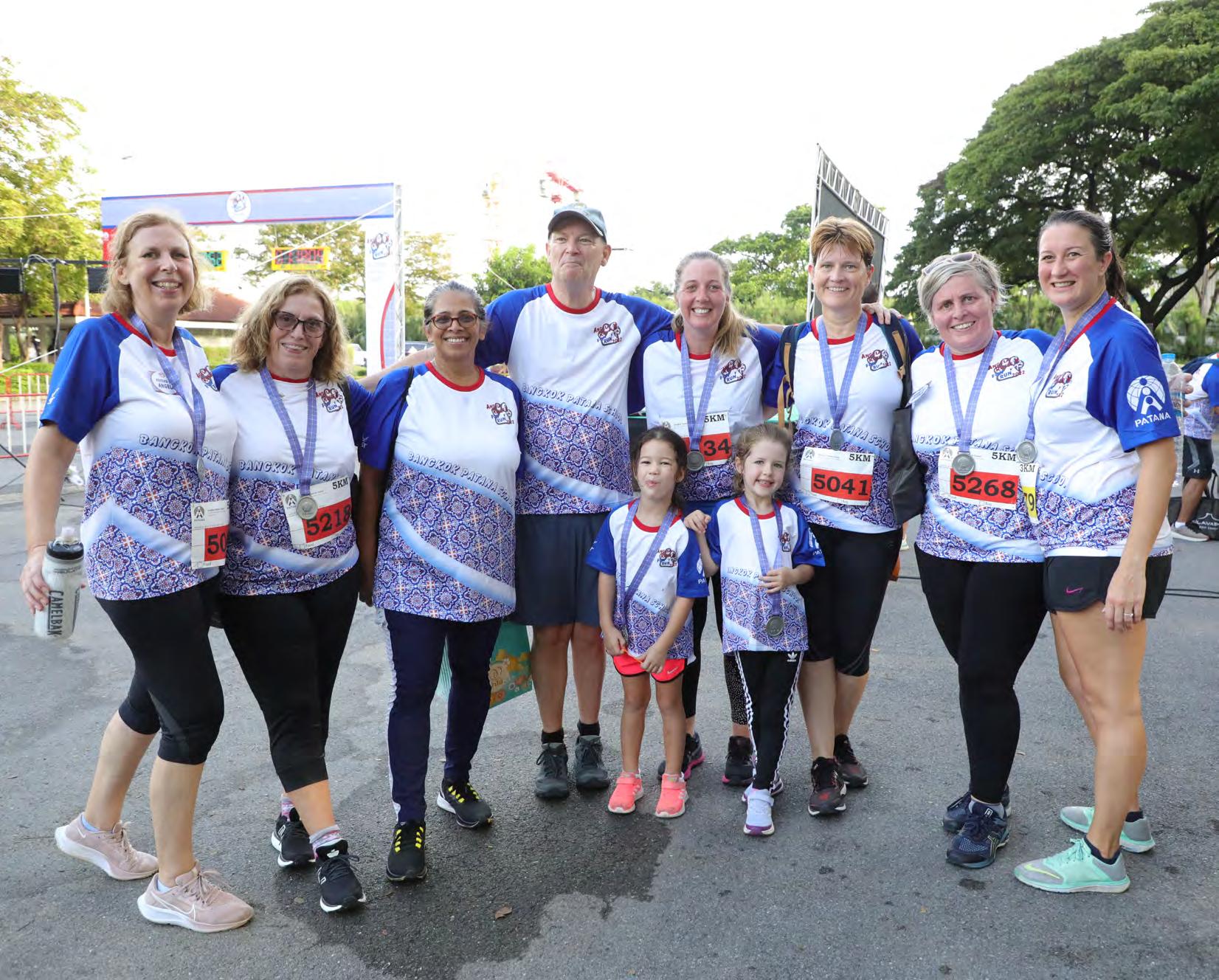
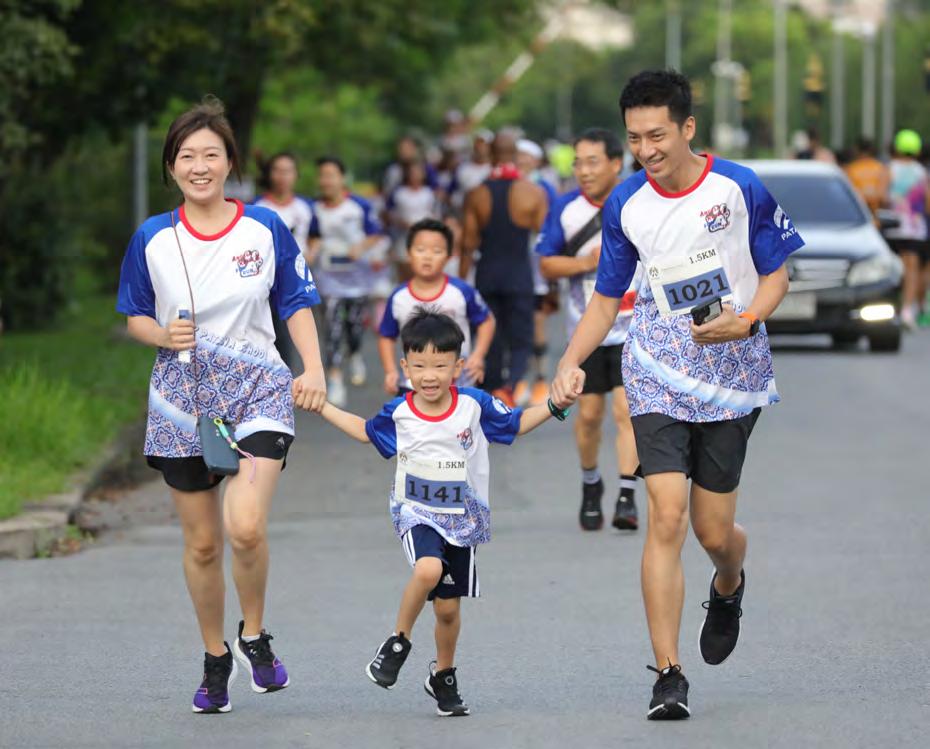
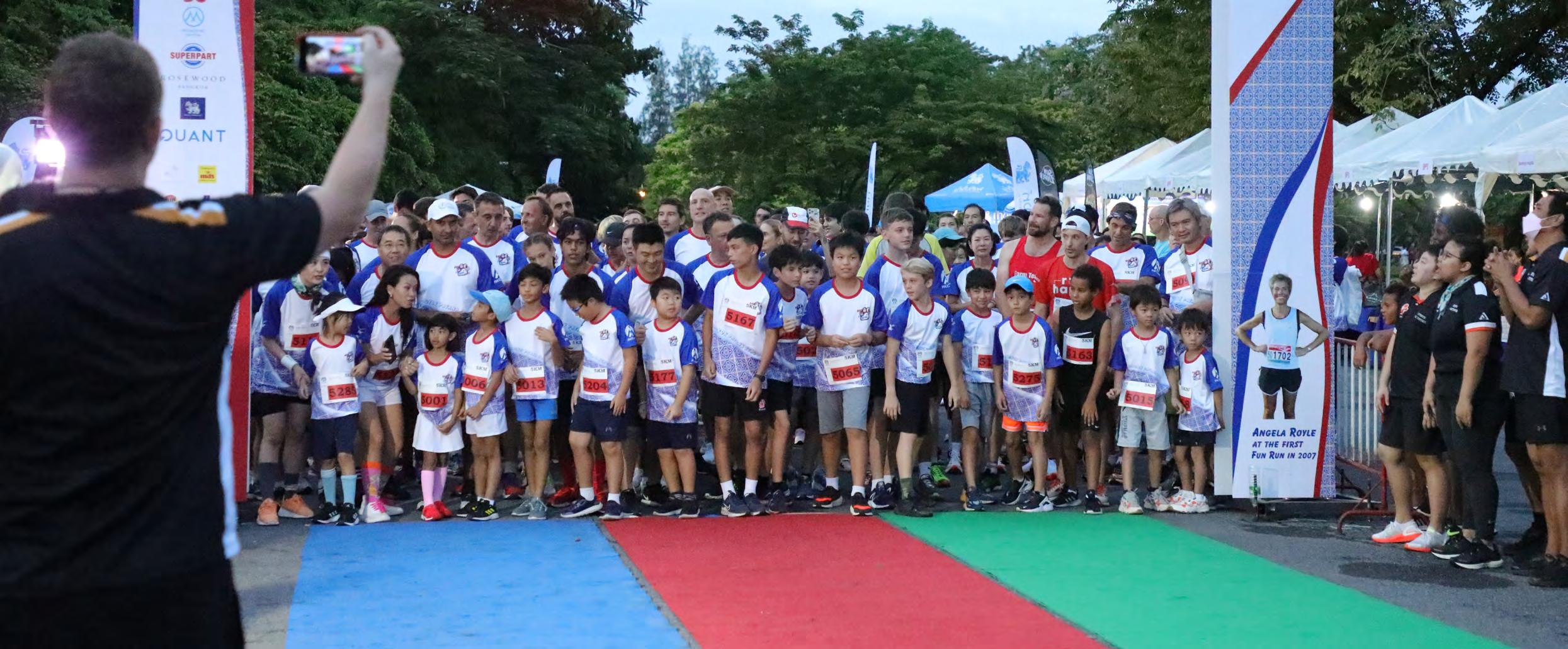
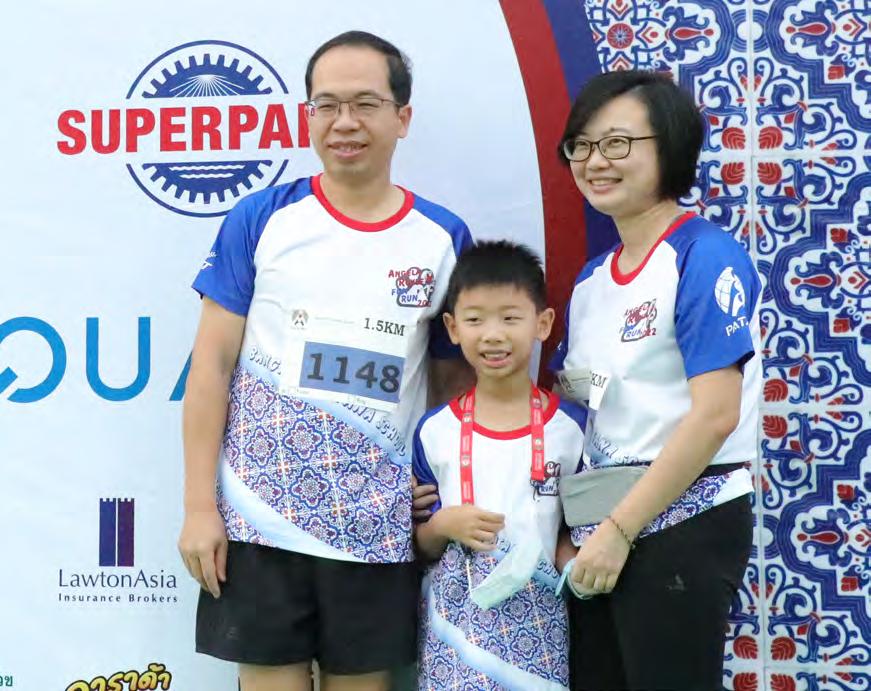
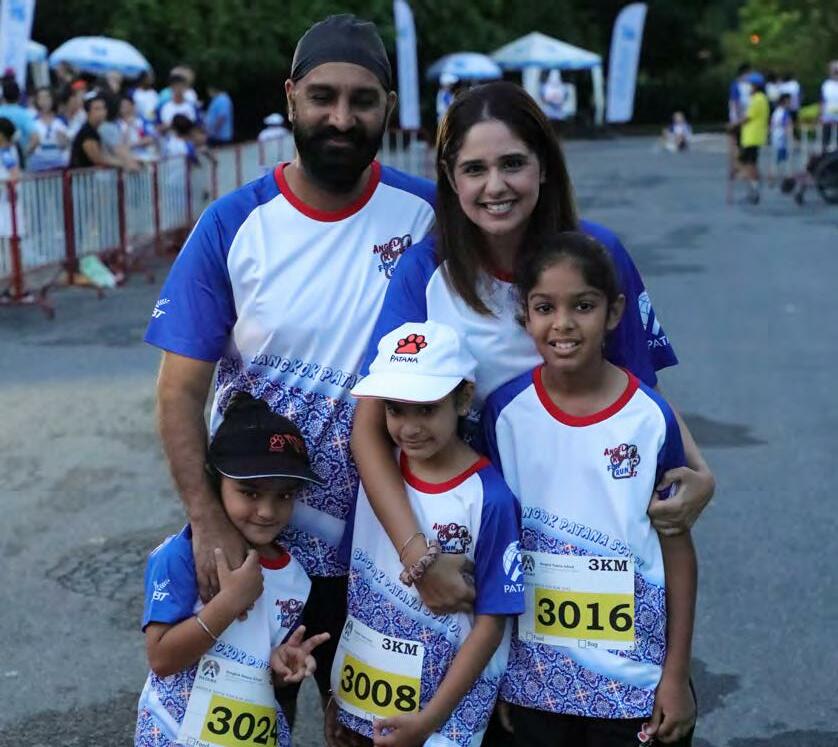
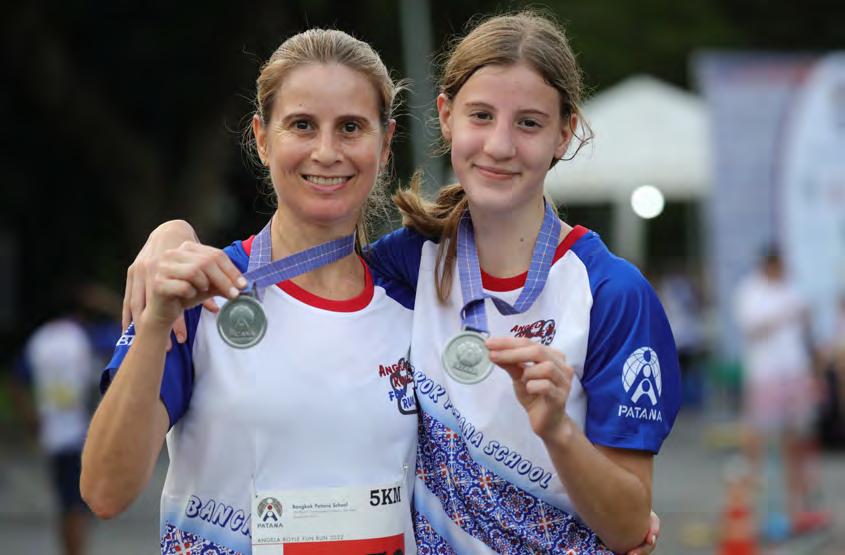
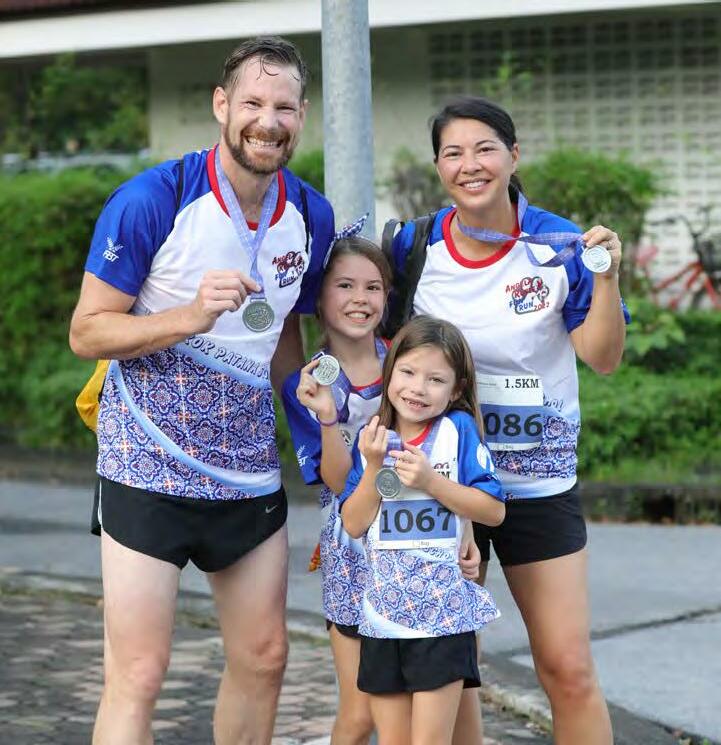
14 • Bangkok Patana School LEARNING 14 • Bangkok Patana School WELL-BEING
October 2022
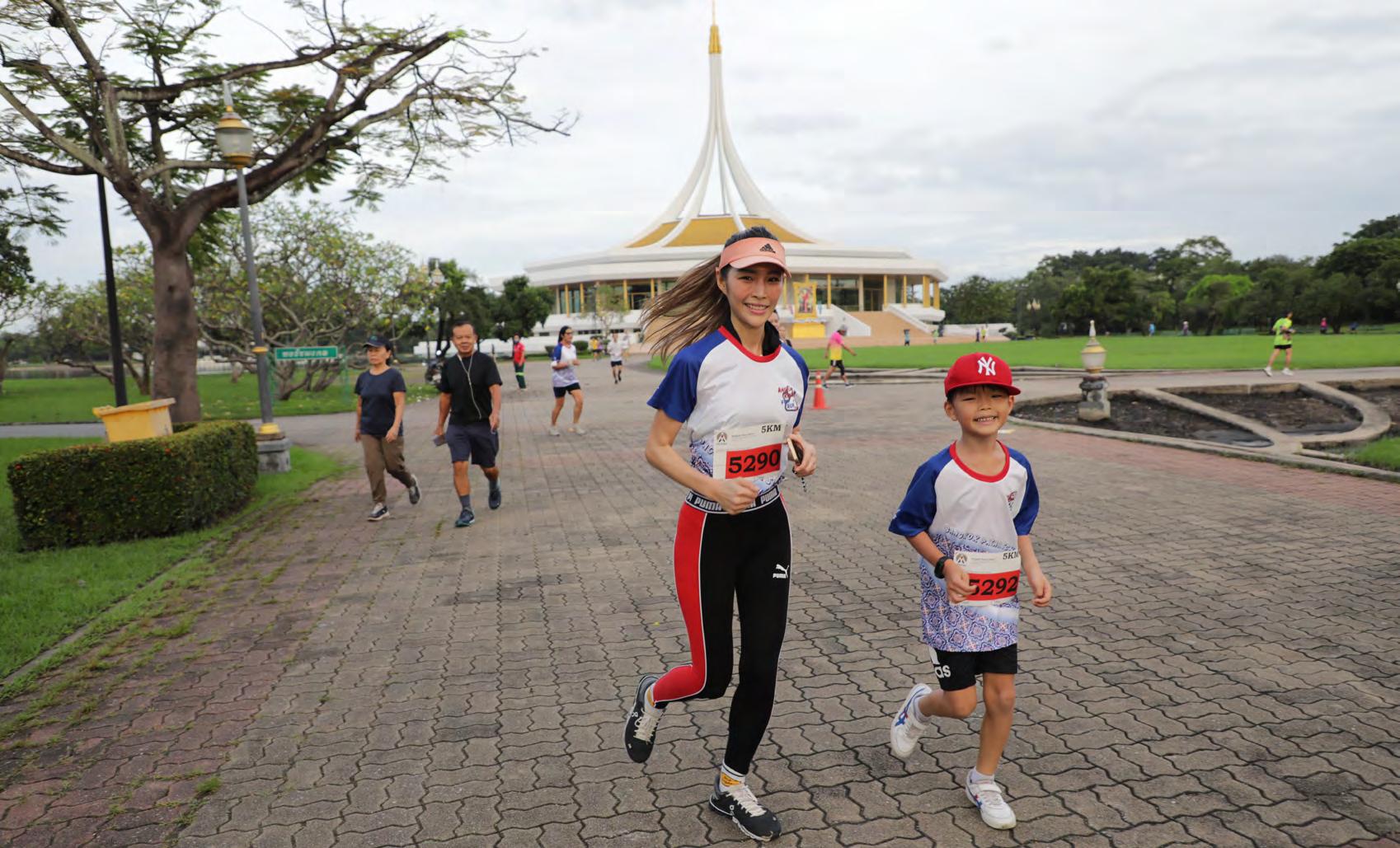
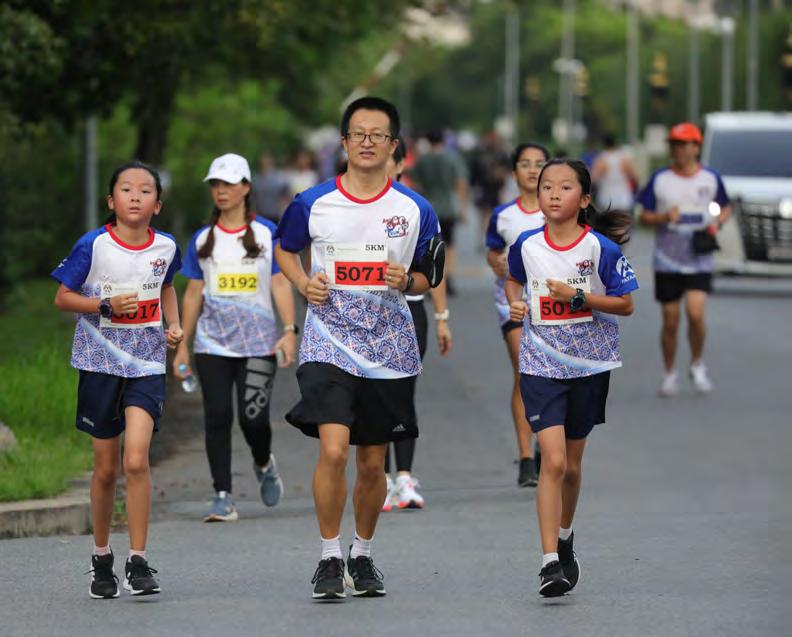
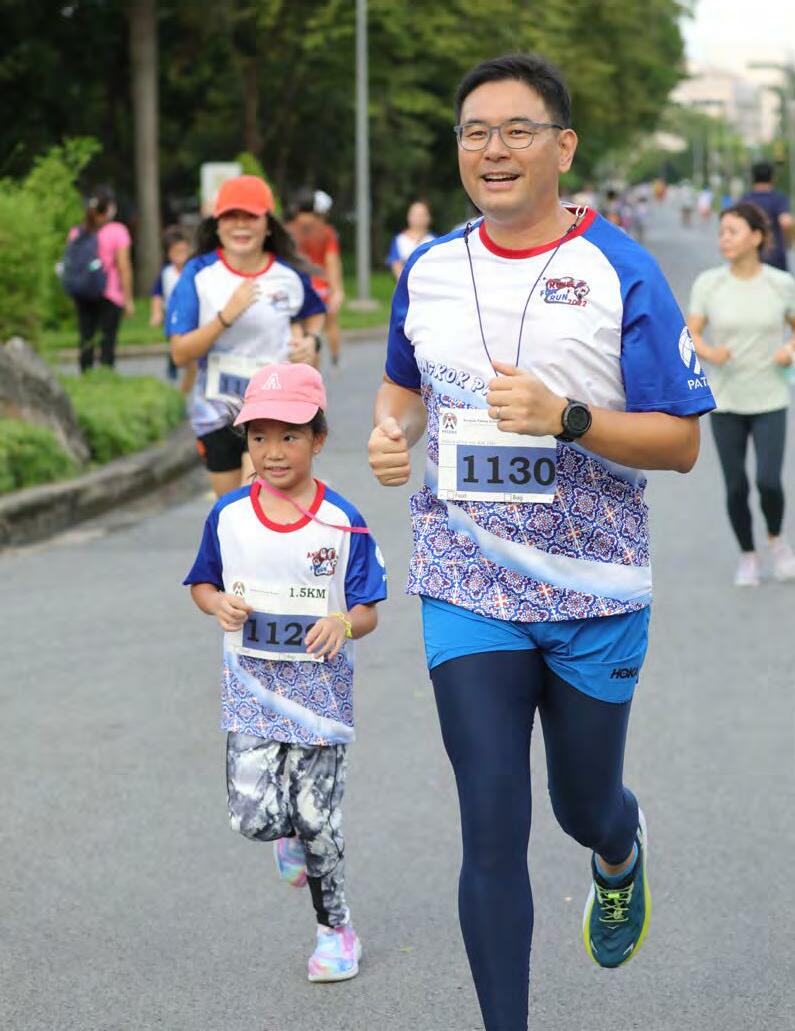
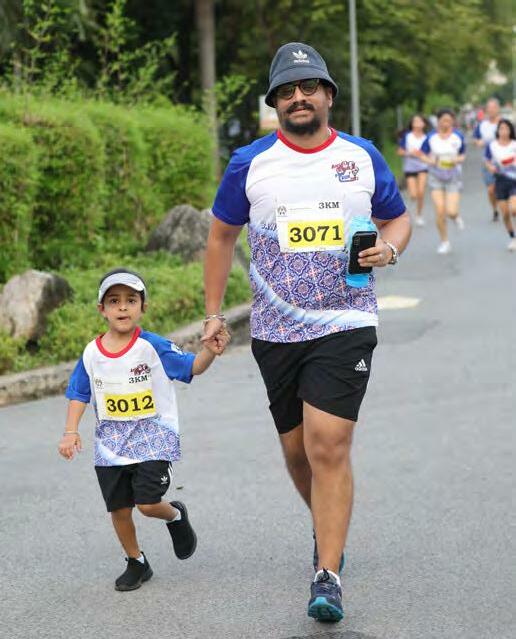
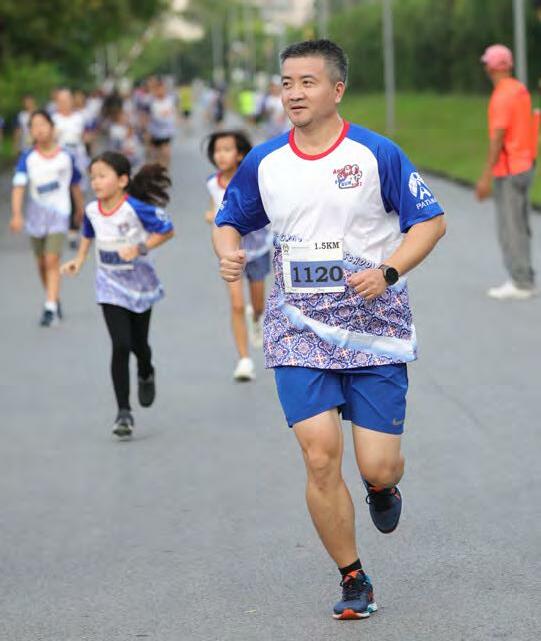
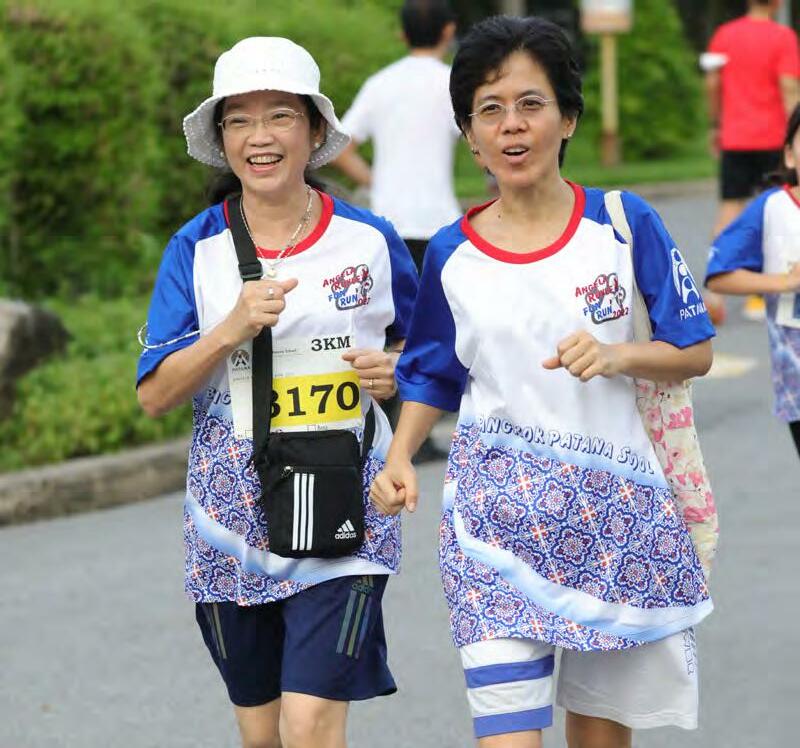
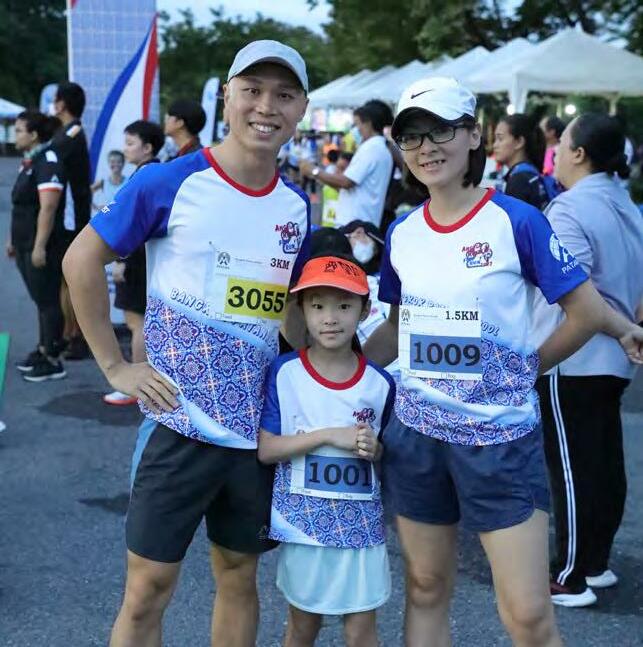
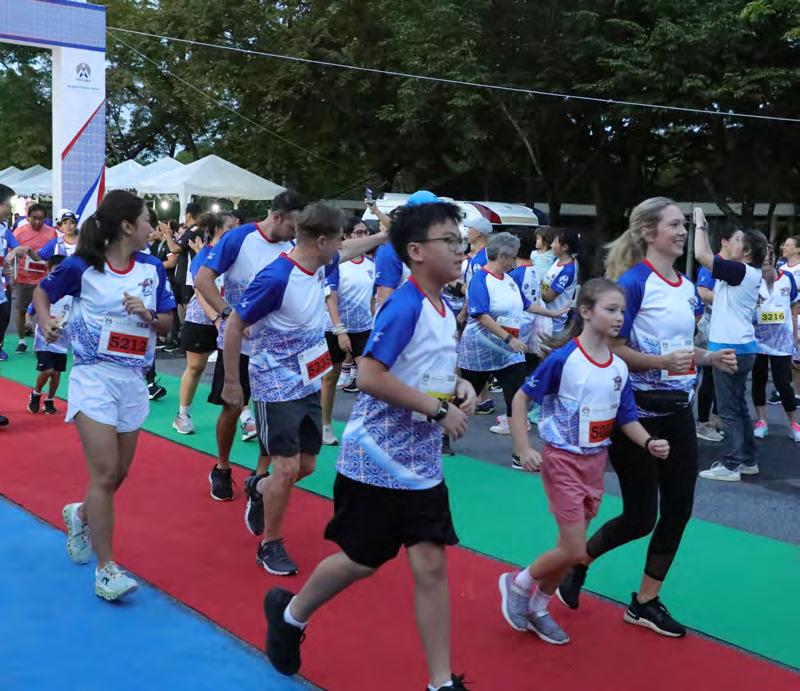
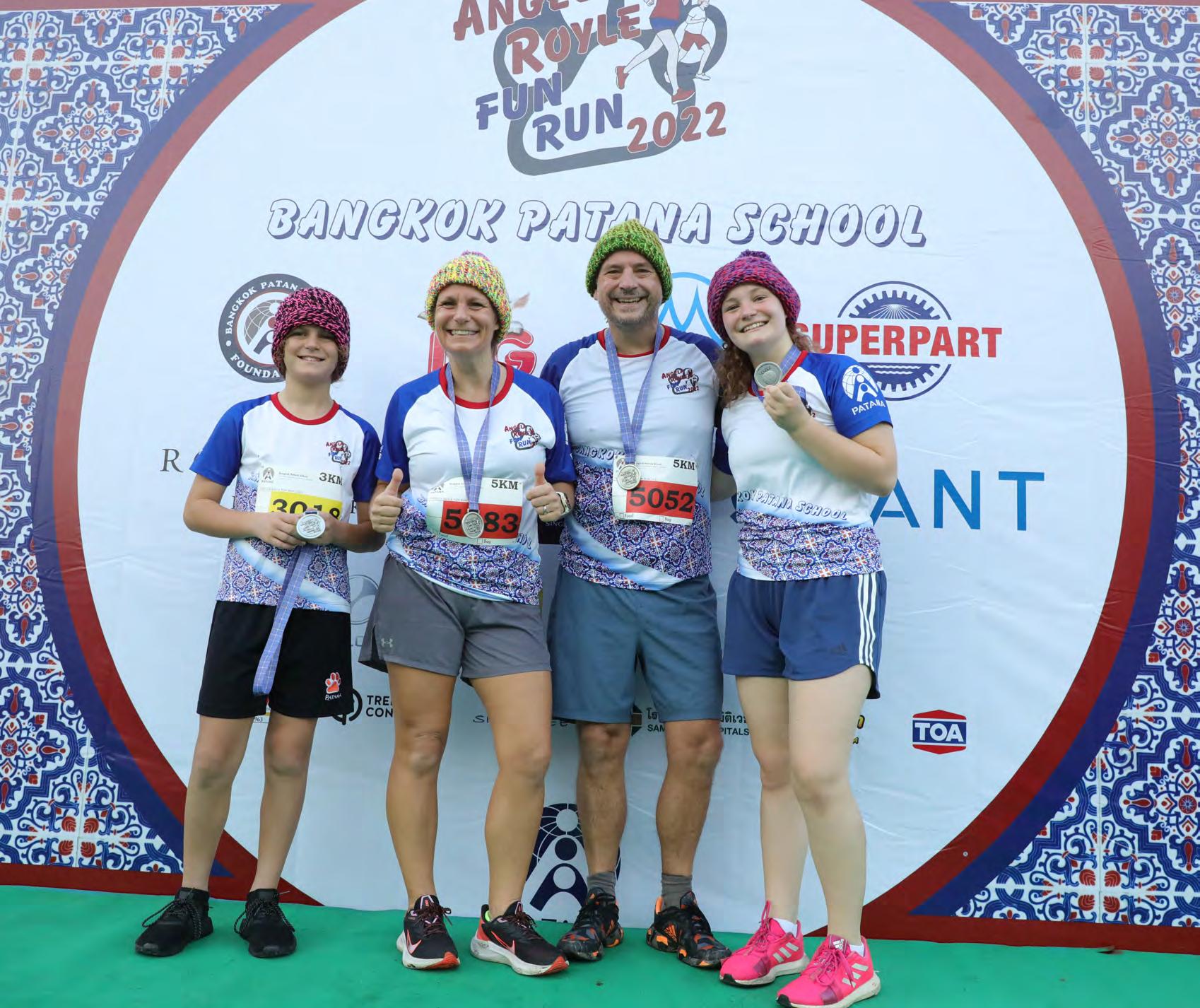
TERM 1 – 2023 • 15 Bangkok Patana Magazine TERM 1 – 2023 • 15
LEARNING
BRAIN BOOSTERS
By the Primary School Learning Support Department
School is where we learn new skills while developing our selfconfidence. But home can also be a valuable place to practise and improve many techniques to make learning easier. From our combined team of Support for Learning teachers, Enrichment Specialists and our Speech and Language Therapist, we have gathered some of our favourite ways to exercise those important brain processes we use to be successful at school. We hope you find one or two new activities your family enjoys trying at home. This article will be shared as a two-part series – look out for the second installment in the Term 2 Magazine!
Grace Smith: Supporting Emotional Regulation
The following games support emotional regulation, which helps students learn self-awareness and understand their feelings better. Some of the games you have in your cupboards can be adapted very easily to support and teach a deeper understanding of emotions.
Connect Four is a great game for turn-taking and strategy. With a simple adaptation, it can also be used to support emotional regulation. Place different emotion stickers on the red and yellow chips. When a player picks up a piece to place it, they must share a time that they have felt that emotion. This can help identify emotions and talk through an appropriate coping strategy to deal with it.
Twister can also be adapted in a similar way. Use a sharpie pen to add emotions to the Twister mat. When playing, add in the emotions to the player’s move. “Look, you have just moved your hand onto the happy face. I wonder if you can show me that facial expression.”
Lots of children enjoy playing with cars. You could focus on emotions when playing by making an emotion car park. Mark out the parking spaces for each car and identify the emotion for each spot. When your child parks the cars, encourage them to talk about the space they have chosen for each car and how that car may feel and why. Use prompts such as “I wonder…” to gently ask questions. A lot of games you have at home will support your child’s learning and understanding of their own, and other people’s emotions. Keep it gentle and don’t force the conversation if they are not interested. They may take time to notice the emotion pictures. Have fun with it!
Michael Plews: Strategising with Abstract Games
There are lots of fun and easily-learned variations on ‘all in a row’ games like tic-tac-toe that are screen-free and fun for all ages! These are great for problem-solving, thinking ahead, pattern-spotting, learning strategies and creating counter-strategies. Also, for turn-taking, kind and respectful social interaction and following rules. The games are quite short in length, which means you can fit in one or two whenever you have a spare minute. No one gets too frustrated by a loss as there’s always an opportunity to start over and learn from what happened last time! Look online for games such as Achi, Tapatan and Dara.
Tanya Peake-Hutchins: Writing for Purpose
Writing is a great way for a student to pull events, emotions and facts from memory and recombine them into new scenarios and characters. There are many prompts available to stimulate students into being creative writers and learn to write for pleasure. By giving picture prompts or real-life reasons to write, students can also write with a sense of purpose. There are also opportunities within school to write outside of the classroom and represent Bangkok Patana in literary competitions and the Patana News is always ready to receive writing from students.
Heather Rising: Exercising Auditory Memory
Auditory memory is particularly important in school. Adults often give new information orally and throughout the day, students must listen to, and follow, multi-step instructions. There are some great games to practise listening skills while increasing the amount of information held in our working memory.

16 • Bangkok Patana School LEARNING GLOBAL CITIZENSHIP
Creating and telling a Choose-Your-Own-Adventure story during long trips was a favourite in my house. Players must decide the order they play, first, second, etc. As each player takes their turn, they become the Story Master and make decisions on what will happen. Player 1 starts by describing a short beginning to a story, setting the scene and perhaps adding one additional character. Then Player 1 offers two choices, such as: Would you like to go through the red door or go down the stairs? Player 2 picks one of the choices, like going down the stairs, and explains what happens next. At the end of their turn, Player 2 must offer two choices for the next player. If necessary, when adult players have their turn, they can help keep the game exciting by introducing twists or new ideas to keep things flowing. Some stories can continue over several days or only last a few minutes. You can set some rules to keep things fair like adding time limits and not allowing players to injure or hurt a character.
Rebecca Fricsay: Practicing Cognitive Development
Playing games with LEGO pieces can help a child’s cognitive development and can help them with following instructions, working out sequence and understanding quantity and patterns. It can also help children to develop their mathematical skills and spatial awareness and can encourage them to come up with new ideas and improve their problem-solving skills. These are a few ideas that you can try at home with your child:
Find the Missing Item
This is a really simple game you can play anywhere with your child, as long as you have a few LEGO pieces with you. Put a few items in front of your child and tell them to memorize what they see. Ask them to close their eyes while you take an item away and see if they can guess which one is missing once they open their eyes. To make it more challenging you can add more LEGO pieces, or re-order the pieces and guess where they were before.
Where is the brick?
You can play this game with three plastic cups and a LEGO brick. You place a LEGO piece under one of the cups and move them around while your child watches and tries to follow where the brick will end up. This challenge will train your child’s visual memory and fine motor skills. You can make this more difficult for older children using more cups and even a few different coloured bricks.
Tell Me a Story
Tell your child a simple story and then ask them to tell the same story back to you, using LEGO people or animals. This
game helps your child understand sequences of actions in a story but can also be used to talk about sequences of actions that you do throughout the day.

Spot the Difference
Make two similar LEGO builds but change one or two things on the second one. Take the first one away and see if your child can remember the differences. To make this more challenging you can change more things and use a larger number of bricks.
Remember the Sequence
Build a tower out of three different coloured LEGO bricks and ask your child to memorize the order of the colour sequence, then let them rebuild the tower. You can make this as complicated as you like, adding many levels and patterns. Add more people to give this game a competitive edge!

TERM 1 – 2023 • 17 Bangkok Patana Magazine
REMOTE RESOURCE SYSTEM FOR A DIGITAL SOCIETY
By Devaansh (Dev) Banga, 11S and Varit Asavathiratham, 11S
As programmers, we’re learning problem-solving and thinking outside the box. Our goal is to create useful systems that improve people’s lifestyles, automate tasks and ultimately make life easier for people. Though our earlier projects were smaller, they involved making repetitive and tedious tasks quick and facile. On the other hand, our latest project has been our most extensive and by far the most challenging of all.
This academic year, a new IB course was introduced
called “Digital Society”. Students research current digital affairs and technologies, analyse their impact and study how new systems can affect the communities around them. They collect data, articles and media surrounding the topic, saving their findings for future use. The 3Cs help them organize their information, sorting by Context, Concept and Content.
Our new software plays a major role in the organisation of the IB students’ studies by providing them with the tools necessary to log and save all the resources they gather into

18 • Bangkok Patana School LEARNING
LEARNING •
the software’s database in an organised manner. This then allows them to search for these resources gathered by both themselves and by other participants in the course, which significantly speeds up the research process.
When we first received the project specifications, we learned that this project would require both Java GUI and a remote database. The GUI would allow users to have an easy-to-use interface. We were able to make the UI with relative ease, and linked all the functions into the program, creating a basic structure for our program. We hadn’t yet created a server and were storing all our test entries locally. We did, however, need to allow multiple users to connect to the same server, thereby pooling the data into one big database. This brought many challenges for us as we had never worked with remote servers before and had always used local databases in our programs.


As programmers though, we had to innovate and figure our way out of this. We first considered the possibility of using external hosting services but quickly learned that these could cost anywhere from $150 upwards to run as a subscription. Naturally, we weren’t sure if our project was developed enough in order to be able to ask for such commitment from our clients. This led us to develop our own remote server by using an old PC we found in school. As this
PC was constantly running and connected to the internet, our remote server was created. We first tried connecting to each other’s computers by embedding our IP addresses into the software’s code to test the connections. We quickly realised that this was working smoothly and was relatively fast, as our devices were able to exchange data. In a perfect world, this would have solved our main remote server problem, but little did we know that a lot of other challenges would arise.
As we started trying out this method by connecting to a database on the PC, we faced a number of challenges. The biggest one of them was that the connection between our devices and the PC were being blocked by the school’s protective firewall. This created big problems for us as we had no way to unblock the connections ourselves. With a bit of help from Khun Ad, the ISIT System and Network Section Manager, we were able to unblock the specific port that the server ran on. We were having success in connecting our devices to the PC and we were able to receive and input data from the software. Our code injected SQL queries into the server in order to perform certain database actions. However, a new problem arose with the IP changing every time the server was turned off and then on again. Bangkok Patana’s network infrastructure is made in such a way that each device gets allocated a new IP address after a certain amount of time or if a device is turned off and on again. Our server kept getting a new IP address occasionally, which made it impossible for the software to be able to connect to the server because its embedded IP address would become invalid. After some more help from Khun Ad, we were able to assign the server a static IP address, which meant that the same IP address was always assigned to our particular server. Once this was complete, our server was finally ready to run and the software worked flawlessly with it. Using the Bangkok Patana VPN, which allows you to be allocated an IP address from the school when outside of campus, users are even able to connect to the server from anywhere in the world. This makes our server truly remote.
Packaging our application was also no simple task, as we had to make separate versions for Windows and Mac users. Our software was run through an embedded runnable environment, which made our code executable on all operating systems. A few issues popped up here and there, but after careful testing, we were able to package a final product which the students can run with the click of a button.
The software was released to the Digital Society class, with feedback being received almost instantly. A few bugs were found and resolved, and our work was done. In addition, we created a simple admin app for teachers to be able to manage resources and maintain data integrity. The software is now being used by the students and teachers of the class, and we hope that as expected, it will be a valuable resource for them in their coursework.
TERM 1 – 2023 • 19 Bangkok Patana Magazine
•
INTROSPECTIVE: VALUES AND LEARNING
By Florian Lauffer, Secondary Mathematics Teacher

If the goal is to allow students to thrive in today and tomorrow’s world, which aspects of an education do you value most? While on a one-year hiatus from teaching Mathematics at Bangkok Patana School in 2021/22, I found myself often reflecting on this question. The differences in curriculum, facilities and opportunities abroad (some positive, some negative) have given me new appreciation for what makes Bangkok Patana a special school.
The Guiding Mission, Vision and Values at Bangkok Patana are a good starting point to answer the opening question. It is clear to me that a school that values well-being, learning and global citizenship will develop students who will shape the world and achieve their potential. In this small introspective, I will share a smaller subset of these values and aspects of Bangkok Patana that I missed abroad, and why I believe they are important in today’s context.
Well-Being Focused – Well-being is the most important of our values and hence the first that gets mentioned. The role that teachers, tutors, counsellors, Heads of Year and leadership play is truly fantastic. A student is more than the sum of individual subjects and to know that my children and students have access and oversight from caring staff on multiple levels is very assuring.
Critical Thinking – My favourite question this year: “Is Mathematics invented or is it discovered?”. Teaching in the IB Diploma Programme where Theory of Knowledge is one of the central components means that students engage with the most relevant question in today’s world. “How do we know?”. In an era of polarizing politics and algorithm-fuelled social media feeds, asking questions about knowledge and how one can be sure is a valuable skill.
Rigorous – External examinations in Key Stages 4 and 5 ensure that the level to which we prepare our students is to a recognized international standard. Teachers and students work together as a team to help fulfil potential. In Mathematics, having success with routine questions will not be enough. A student hoping to achieve a strong result must apply their knowledge that spans different areas of the subject, while selecting and applying correct techniques in a variety of situations. Knowing when and how to use the tools at one’s disposal is much more important than being able to solve predictable problems. A comment that was shared
last year: “Mr Lauffer, this problem on the test was not in my homework.” At Bangkok Patana and in the IB Diploma Programme, key skills must be used appropriately, sometimes in novel ways and spanning many topics to be successful. This type of problem-solving and depth of knowledge certainly develops a student’s capacity to accept and adapt to future challenges in the real world.
Balanced – Finally back after so many disruptions throughout the last two COVID years, seeing students develop in extra-curricular activities (ECAs) outside of the classroom is great. Learning how to negotiate, accept setbacks, be humble, be supportive, be inclusive and develop as a collaborative team member are only a few of the benefits that one can find in the ECA programme. No matter the future path, having a balanced life is important and the ECAs certainly start our students by role modelling this.
Returning to the opening question, “Which aspects of education do I value most?” I feel confident that if our children feel supported, have access to a stimulating, critical and rigorous curriculum and can find that work/life balance, I would be very happy with the prospect of them being ready for many of the challenges that await. I am optimistic for their future!
20 • Bangkok Patana School LEARNING
LEARNING
HOME AWAY FROM HOME
By Safy Rizk, Bangkok Patana Parent and PTG Chairperson

“Can we go to school on the weekend?” is a question I often get asked by my Year 4 daughter, which ends up in me asking “Why?”. The answer has been the same for the past four years: “because I love Bangkok Patana”. I remember when I was her age, school was not my favourite place to be, which made me wonder why Bangkok Patana is so popular among not only its students, but also among its parents.
While researching to write this article, most of the families I spoke with mentioned a common factor: Bangkok Patana offers a sense of belonging. This is a quality that takes years to build, or, as one of the parents I spoke with said, “It’s an accumulation of many small unnoticeable daily things that couples with the big events and brings everyone together”.
The Bangkok Patana community thrives on engagement, communication and relationships. The three pillars act as a strong foundation for embracing both existing and new parents. The school offers an open-door policy, which advocates transparency. Parents are always welcomed to be a part of the campus, whether by visiting libraries, joining their kids for lunch at the canteen or by volunteering in any of the numerous Parent Teacher Group (PTG) activities. This, in return, builds that sense of security for both parents and students and knowing they are part of the bigger picture creates that sense of home. And this is what Bangkok Patana is all about: a home away from home.

Being part of the Bangkok Patana community creates an unspoken commitment. Commitment to be diverse, resilient and supportive, in other words, a global citizen.
“My takeaway as a parent is that the school offers a sense of togetherness within its community, I don’t feel alienated or left
out although I only joined Bangkok Patana in August 2022”. As wonderful as that sounds, it came as quite a surprise to me – how was that achieved in just two to three months’ time? The answer was quite simple: they felt welcomed.
I enjoy talking to students as they always offer an entirely different point of view than that of adults. When gathering opinions on how students see their parent’s engagement at school and whether they support it or not, most of them agreed that they feel comfortable knowing that on certain days their parents are “within reach”.
We all crave a sense of belonging, whether we realize it or not. Whether at work, at social events, within our families, or even at school. We want to feel welcomed, appreciated, valued and accepted for who we are. That sense of validation you receive, regardless of your race, ethnic background, gender or faith, helps in establishing healthy connections with the community around you, and this is what Bangkok Patana provides: a sense of belonging.
TERM 1 – 2023 • 21 Bangkok Patana Magazine
ALUMNI STORIES LIFE AFTER PATANA
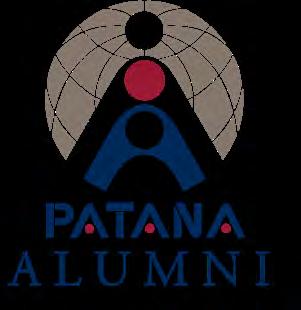
INES DUMONT, GRAD ‘12
When Ines Dumont (Grad ‘12) first landed a job at Amazon, she said she found it tough with really high pressure. Now, as a Senior Operations Manager with the global conglomerate, she recently reflected on her Bangkok Patana School experiences. “I am grateful to have learned the ability to handle multiple priorities! The IB Programme is very demanding and I would say that balancing the studying and coursework of six subjects taught me how to navigate high pressure situations and prioritise tasks effectively,” she said.

After her graduation from Bangkok
Patana School, Ines went on to complete her B. Comm at McGill University in Canada, with a major in Information Systems and a minor in Economics. Her top memories at Bangkok Patana include all her Duke of Edinburgh (DofE) International Award excursions. “Our DofE Gold cycling trip from Chiang Mai to Chiang Rai was one for the books. We were a group of six or seven people and by the end of the trip we became so close. I remember the scenery being so beautiful, especially when cycling through the hill tribes of Chiang Rai near the Burmese border. We stayed
in monasteries and campsites perched atop hills. One lesson learned from that trip is always to check elevation gain on Google maps when planning a route. Let’s just say we had a nice surprise when we got there and had to walk our bikes up some hills,” explained Ines, “Residentials and field trips were great opportunities to explore new areas of Thailand and get close to people in your classes. One that stands out to me was a GCSE PE trip in which we had to learn how to flip our kayaks after capsizing in white water. I have to admit it was scary at the time but such a great experience!”
22 • Bangkok Patana School LEARNING GLOBAL CITIZENSHIP
GLOBAL CITIZENSHIP
Learning at School to Practical Work
“Additionally, I learned leadership qualities – in Year 9, I remember joining a peer mediation programme, aiding students with disagreements to reach a solution. In Years 12 and 13, my roles as Phuket House Captain and Senior Delegate gave me my first taste of leadership. These early leadership experiences, including managing conflict, were great foundations for me and are skills I use to this day. Furthermore, my parents always instilled in me the importance of writing clearly and effectively. I would say that through all of the coursework we had to do during IB - such as TOK essays, English literary analyses, and the extended essay - I learned to structure my thought process within a very limited word count. In my current role, I’ve had to write multiple one-pagers and whitepapers where being concise is so important. And finally, one of the greatest things about studying at Bangkok Patana was the exposure to various cultures. International Day allowed us to learn about different cultures, which opened my eyes to the world. This prepared me for the work
environment in Canada, and specifically Montreal, which is a melting pot of different cultures.”
Shortly after graduating university, Ines began her role at Amazon. She navigated through challenges and was promoted to leading a small team of workers in the fulfilment centre. “There were days where I would question how much longer I could last as it was a very high-pressure job. About a year into my role, I had a turning point in my career due to my inspiring manager. She pushed me to reach my fullest potential and opened my eyes to all the opportunities available in the company. Five years and eight months later, I am still here! I have gone through several different roles to get to where I am now. I am most proud of launching Quebec’s first ever Fulfilment Centre in July 2020.”

In September 2022, Ines moved to Madrid and took on a new role at Amazon in Programme Management. She said she was excited to be experiencing a new side of the business and being able to fulfil her goal of living and working in Europe. “Madrid has been amazing. There is so much to love about this city: beautiful architecture, great weather, the food scene and the

Spanish way of life. It is also a bonus that I am a little bit closer to home now. I have been taking intensive Spanish courses while here. I learned Spanish during IB and it was one my favourite subjects! I hope to become fluent after some time here.”
Ines describes her main passions as music and food. “I play the piano on the weekends to decompress from busy work weeks and love discovering new artists at festivals. With food, I love to experiment and to cook new dishes - mainly Thai and Filipino cuisine. Montreal also has an amazing food scene, and I am constantly exploring new restaurants with friends.”
Looking ahead, Ines remains enthusiastic. “In ten-years, I’ll probably still be working for Amazon or another big corporation. I love the fact that you can move around the world with your job! Hopefully at some point in the future I’ll also be able to take an extended break from work to travel. There are still so many places on my bucket list. My dream is to spend months exploring my home country the Philippines. I’ve been to quite a few destinations already, but I still have hundreds more islands to see!”
TERM 1 – 2023 • 23 Bangkok Patana Magazine
TEST TAKING STRATEGIES: STUDY SMARTER
 By Karel De Cock, Career and University Counsellor
By Karel De Cock, Career and University Counsellor
Taking tests and exams are part of being a student. And while students may not look forward to them, tests and exams are important tools that teachers use to evaluate a student’s understanding of a topic. There is a good deal of anxiety and uncertainty when sitting for tests and there
are several coping strategies that students can utilise to alleviate these pressures, and that parents can practice to help support their students. Before we get to that point, though, let’s take a step back and breathe.
Keep in mind that students don’t need to study “harder”, but “smarter”. Here are a few revision techniques to support your child to study smarter for their tests:
• Encourage your child to set up a study timetable and write down their goals. In order to allow our brains to absorb the most information and to be able to recall previously studied information during a test or exam, we need to break it up into manageable segments. By planning it out reasonably, students are able to review a good amount of material daily, rather than everything all at once. Help your child plan for achievable study goals so that they don’t become frustrated before even sitting the exam. Students can then write down their goals for the day and make sure they achieve those goals.
• Remind your child to ask for advice from their teachers. Every subject is different, so as a result, students will need to study differently depending on the subject matter. Reading through a hundred pages of their textbook is the most ineffective way of studying and is actually a waste of time. Their teachers know the format of the exam and the essential content they will need to know for that subject.
• Help your child to identify their weakest links. Have an honest conversation with your child to determine which topics or subject areas are most challenging for
24 • Bangkok Patana School LEARNING
• GLOBAL CITIZENSHIP
them to remember. Perhaps they forgot a whole unit of a specific subject – they will need to then put more effort in revisiting and studying that part again. Students can also set extra time in their everyday study goals to specifically study that subject matter. If it’s a mathematic topic that they can’t comprehend, advise your child to sort out the proper understanding with their teacher or classmates before they begin to study it. If there is a part of history content that your child struggles to remember completely, the best solution is to begin early – support your child to set aside time now to begin reviewing it through notes, books and video clips.
• Study with concentration. We all have a limited attention span, and it varies person to person. Emphasise scheduling study time that maximizes your child’s attention span. They may need to change subject matters every 30 minutes or change the method of studying within the same subject matter to sustain their attention.

• It’s all about practice. Make learning more interesting by testing your child in various ways such as verbal inquiry, asking them to write summaries and helping them to create study notes. Students aren’t able to apply learned knowledge without any practice. If answering analytical essay questions is difficult for your child, try to help them practice drafting outlines and working on their topic sentences.
• Motivate your child by allowing them to set their own limitations. Students can create a limited and inaccessible environment that prevents any disruptions when they study. Remind your child not to engage with any accessible entertainment or distractions during their
set study schedule. Any privileges such as taking a break, going on social media, talking with friends or playing video games can be a motivator and a reward only after a productive period of concentrated study time.
• Eat, rest and exercise. Your child’s ability to concentrate depends heavily on their physical well-being. Eating nutritious and healthy food plays an important role in their ability to concentrate. Research has shown that having the right nutrition, quality rest and regular exercise can boost brain power.
Some additional tips for how parents can help:
• Provide a quiet, well-lit area with little distractions;
• Make sure that your child gets enough sleep on the night before the test;
• Let your child relax for a few hours before bedtime, it can be stressful to study all night;
• Maintain and demonstrate a positive attitude about tests and exams;
• Keep testing in perspective – it’s important to not be upset by a single test score;
• Mark down test days on your own calendar so you are aware of when your child may be stressed or need extra support;
• Offer positive re-enforcement;
• Talk to your child about testing, focusing on the purpose of the test;
• Stay in communication with your child’s teachers.
TERM 1 – 2023 • 25 Bangkok Patana Magazine
A CLEAN SLATE
By Richard Molloy, Cross Campus Head of Sports
Sport has been given a clean slate this year. We started Season 1 with the chance to create opportunity and experience across our teams. We also sought to engage as many students as possible and bring sport back into their lives. The return of SEASAC competitions meant our Varsity teams were able to head to Singapore to reacquaint with great rival schools. For Cross Country, Football and Volleyball, this meant a sterner test than has been available in recent years.
The students, as always, rose to the occasion both on and off the field. The Girls’ Football team were at their dominant best as they powered into the final against old rivals, Tanglin Trust School. On this occasion, an extra time goal meant the Girls came home with Silver, still plenty more chances to come for the young squad. The Boys’ Football and Volleyball, as well as Girls’ Volleyball, all performed admirably and came away in 6th place in their respective tournaments. The success of the trip is much broader than the final placing, seeing our teams build friendships, find common ground and thrive under pressure is such a magical experience and we can’t wait to host Tennis and Rugby in Season 2.

The Tennis programme have been busy preparing the Under 14 players for their BMAC team event. Both Boys’ and Girls’ teams have put up typically strong performances, earning their BMAC titles in style!

Our Junior Basketball teams have also had a busy season, playing in the now seven-team BMAC competition, fielding strong teams that were full of Tiger spirit. The Under 14 Boys, under the guidance of long-time Head Coach Carlos, won against a strong field, snatching the win in a closely fought match with NIST. The Under 12 Boys took a Silver medal, with the Under 14 Girls placing 4th and Under 12 Girls 7th.

There was also success for our Cross-Country teams as the Under 11 Boys’ and Girls’ teams were crowned BMAC champions, including lots of medal success across the Under 11, Under 12 and Under 14 age groups.
We are excited for what is to come in Season 2 as we host SEASAC Rugby and Tennis, with Touch and Basketball in Bangkok as well.
Go Tigers!
26 • Bangkok Patana School
GLOBAL CITIZENSHIP •
f o r d i s c o u n t f o r d i s c o u n t a n d a p p o i n t m e n t a n d a p p o i n t m e n t
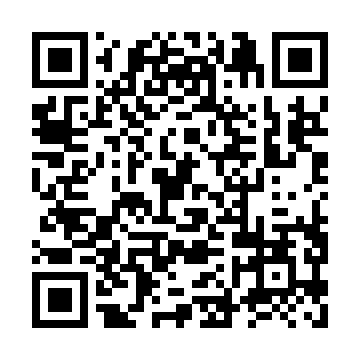


NEW HOMES IN LONDON

White City Living, set in 20 rai of parks and gardens, surrounded by worldclass retail, entertainment, culture and commerce.

The new elegant Cascades buildings sit in a tranquil part of White City Living next to the oriental water gardens. Connected by Japanese bridges spanning across reflection pools and cascading waterfalls, this is a place of calm.
•
• Two Underground stations at the entrance
• Next to Westfield London –Europe’s largest shopping centre


• Next to Imperial College London’s new campus and within 30 minutes of four of London’s top five universities

•

Prices right at time of print. Computer generated imagery is indicative only and subject to change. Travel times from google.co.uk/maps WHITE CITY LIVING PADDINGTON LIVERPOOL STREET BOND STREET GREEN PARK KING’S CROSS 08 mins 12 mins 18 mins 20 mins 24 mins
Studio, 1, 2 and 3 bedroom apartments
amenities STUDIO FROM £615,000 1 BED FROM £735,000 2 BED FROM £985,000 3 BED FROM £2,285,000 Completion from Q1/Q2 2024 FIND OUT MORE Pakaporn Emwong Tel: +66 95-661-4651
Exclusive residents‘ lifestyle club of more than 30 facilities and





























 By Cindy Adair, Cross Campus Assistant Principal, Continued Professional Learning
By Cindy Adair, Cross Campus Assistant Principal, Continued Professional Learning

































 By Karel De Cock, Career and University Counsellor
By Karel De Cock, Career and University Counsellor











